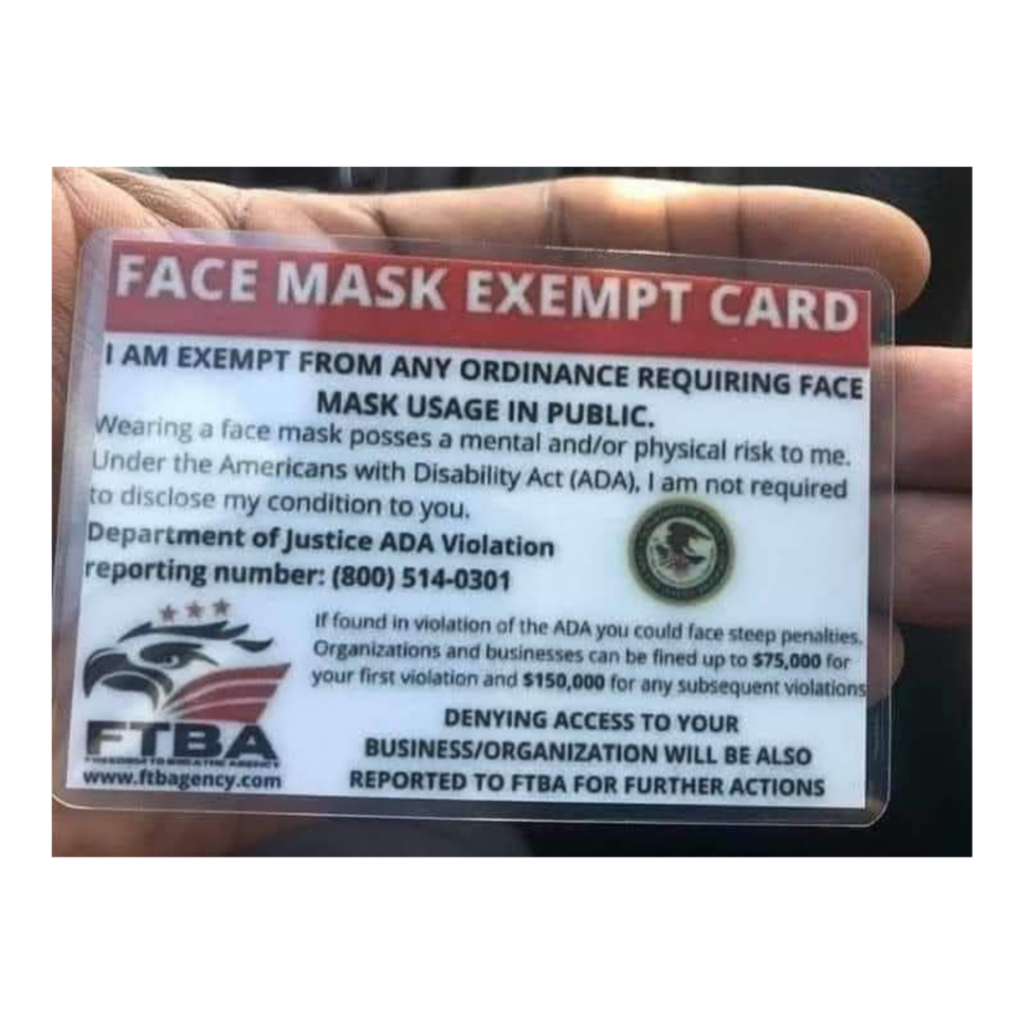After over a year of comments, the Equal Employment Opportunity Commission (EEOC) has recently created and implemented final rules on Wellness Programs. Employers who offer such programs will need to take the time to review and update their policies and procedures for the program in order to make sure that they are – or will be by the implementation date – compliant.
Despite many good things about the new rules, which will go into effect on January 1, 2017, they are already causing some limited amount of controversy. This controversy revolves around the complications caused by multiple agencies already having rules and regulations on this subject.
While some people are glad they exist and find them helpful, others are afraid that the new rules make everything even more complicated as multiple organizations and laws already cover wellness programs. More laws means even more overlapping obligations put upon employers, who must figure out all of the laws, as well as which apply to them.
In order to help, this post will take a look at the new rules, as well as some of the rules and regulations already in place across the various agencies that help regulate Wellness Programs. Then, we will tie it all back together in order to see just what all of these rules mean for you and how you can keep compliant across various expected regulations.
The EEOC’s New Rules on Wellness Programs
While the EEOC’s new rules might put more regulations on an already largely regulated area, that does not necessarily have to be a bad thing. The new rules do help answers a couple of different confusing areas of contention within the wellness program world. They also help to clarify and unify the various obligations by employers – especially as across those laws that are run and enforced by the EEOC itself – specifically, the ADA and GINA.
For example, here are some of the various areas that the new rules created by the EEOC address:
- The new rules explain how the ADA and GINA (both of which I’ll talk more about in upcoming sections) apply to and deal with wellness programs.
- The new rules address how employers may use and obtain personal information from employees and their spouses.
- The new rules allow employers to offer employees and their spouses financial incentives equaling up to 30% of the total cost of self-only health coverage.
- The new rules also explain that, while spouses can receive incentives under certain circumstances, they cannot receive incentives linked to tests taken in order to receive information on medical history or genetic dispositions.
These rules came after a year and a half of deliberation and research by the EEOC and are designed to clarify and make clear many different aspects for all parties – including both employers and employees.
In fact, many of the rules were created as a form of compromise between the wants and desires of both groups. To see what I mean, look at the above mentioned 30% cap.
Employers want to be able to afford to give employees high incentives for participation because doing so offers many benefits to the employer themselves – from lower health costs to better productivity and attendance from a healthier workforce. However, some employee advocates worry that such incentives might put a lot of pressure on employees to use work-provided programs instead of shopping around.
The 30% incentive cap is intended to give employers the opportunity to reap benefits from their wellness programs without putting undue pressure on the employees.
In order to make sure you are compliant with the new rules, there are a few simple steps you should be taking right off the bat:
- Don’t collect personal medical information from specific employees participating in the program. (Meaning, you shouldn’t be able to glean the specific health concerns of Jane Doe from the information you gather.)
- Make sure the main focus of the program is to improve the health of participants.
- Make sure any information you do gather is reasonably related to the health benefits the program is designed to improve.
For more information on the new law, make sure you read the Human Resources Executive Online’s take on the subject.
The Affordable Care Act and Wellness Programs
The Affordable Care Act (ACA), which was created to deal with the growing problems with healthcare coverage across the country, generally prohibits employers from treating people differently because of health-related information. It also limits what information employers can collect.
However, because wellness programs are unique when it comes to these expectations, it raises many questions on just how these limitations apply when dealing with these programs. To that end, as long as they meet specific requirements, wellness programs are generally allowed under the ACA.
The way to comply with these requirements is to make sure they meet any privacy expectations that employees are legally allowed to expect.
In order to meet the protection of the wellness program allowances under the ACA, then employers should still be doing the steps listed above – limiting information collected and designing a program truly built to improve the health and safety of employees. As you will soon see, this will be a growing trend across the rules.
While some things may be uncertain or complicated, what is not is the desire to protect employee’s information and promote health. That is why so many different laws have requirements for wellness programs, and why many of those rules and regulations revolve around health promotion and protection.
The Genetic Information and Nondiscrimination Act and Wellness Programs
The Genetic Information and Nondiscrimination Act (GINA) is a law that is designed to eradicate discrimination against genetic information. The law, which is run by the EEOC, bans employers from accessing or requesting genetic information from employees in many different situations.
For those exceptions to the rule, where limited amounts of genetic information is collected – whether inadvertently or intentionally in a legally compliant manner – the law also dictates how employers should handle that information.
While there are a few exceptions to when an employer may collect genetic information, the one that is the focus of this post is, of course, relating to wellness programs.
Employers may sometimes collect an employee’s genetic information if it is necessary to the health promotion of a legitimate wellness program. However, once that information is collected, it must be protected and cannot be used to discriminate against the employee.
There are several requirements that must be met for this to be applicable, though.
For example, entry into the wellness program must be voluntary. An employer may not require employees to participate in the program, especially if genetic information is being collected.
Another requirements makes employers have to have written consent from employees before collecting the genetic information.
Yet another requires the information to be collected in the aggregate – and not designed to target or incentivize a particular employee or groups of employees.
For example, let us say that some of the genetic information collected shows that a few employees have a high risk for a specific disease – so you send out incentives to those employees at risk to participate in a program designed to lower that risk. This would not be okay. On the other hand, if you saw that your overall workforce has a high risk for that disease, without pinpointing that specific subclass of employees at risk, and so you offer incentives to the entire workforce to participate in a program designed to lower the risk factors overall, then you might be okay.
Once again, though, what it all comes down to is basically ensuring your wellness program is designed to promote health and not to collect private health information.
Health Insurance Portability and Accountability Act and Wellness Programs
Once again, the Health Insurance Portability and Accountability Act (HIPAA), like the ACA, is designed to prevent discrimination on health costs, premiums, etc., against two similarly situated people because of a health factor. HIPAA also protects an individual’s privacy rights when it comes to health information.
Under HIPAA, employers may offer wellness programs, but once again, these programs must meet certain requirements. There are two basic types of allowable wellness programs under this law: participatory plans and health-contingent ones.
What elements are required by the law in order to be compliant is determined by the type of plan being run. However, no matter which type of plan is being used, employers need to make sure they understand their legal requirements.
The Americans with Disabilities Act and Wellness Programs
The Americans with Disabilities Act (ADA) is another law that is run by the EEOC, meaning the rules are pretty similar to those already discussed. The ADA is designed to protect individuals with disabilities from being discriminated against because of those disabilities.
While the ADA limits an employer’s ability to require an employee to participate in a medical exam and also restricts medical questions and employer may ask a current or potential employee, it does have a limited exception for exams and questions pertaining to participation in a voluntary wellness program.
Final Thoughts
While it is true that many differing agencies have come up with guidelines on the topic of wellness programs, it is also true that most employers have had plenty of time to prepare. The National Business Group on Health reports that the new rules are pretty much the same as those rules the EEOC proposed last year.
If you have a wellness program, and you want to make sure it is compliant with these new rules – as well as all of the rules formed by any of the other agencies partially regulating these programs, then make sure you talk to a qualified employment lawyer.

![The New Frontier: Navigating Business Law During a Pandemic [310]](https://www.pashalaw.com/wp-content/uploads/2020/12/Pasha_LSSB_Epidsode308_Covid_Web-1-1024x683.jpg)






![Law in the Digital Age: Exploring the Legal Intricacies of Artificial Intelligence [e323]](https://www.pashalaw.com/wp-content/uploads/2023/11/WhatsApp-Image-2023-11-21-at-13.24.49_4a326c9e-300x212.jpg)
![Unraveling the Workforce: Navigating the Aftermath of Mass Layoffs [e322]](https://www.pashalaw.com/wp-content/uploads/2023/07/Untitled-design-23-300x212.png)
![Return to the Office vs. Remote: What Can Employers Legally Enforce? [e321]](https://www.pashalaw.com/wp-content/uploads/2023/01/Pasha_LSSB_321_banner-300x212.jpg)
![Explaining the Hans Niemann Chess Lawsuit v. Magnus Carlsen [e320]](https://www.pashalaw.com/wp-content/uploads/2022/10/LAWYER-EXPLAINS-7-300x169.png)
![California v. Texas: Which is Better for Business? [313]](https://www.pashalaw.com/wp-content/uploads/2021/07/Pasha_LSSB_CaliforniaVSTexas-300x212.jpg)
![Buyers vs. Sellers: Negotiating Mergers & Acquisitions [e319]](https://www.pashalaw.com/wp-content/uploads/2022/06/Pasha_LSSB_BuyersVsSellers_banner-300x212.jpg)
![Employers vs. Employees: When Are Employment Restrictions Fair? [e318]](https://www.pashalaw.com/wp-content/uploads/2022/05/Pasha_LSSB_EmployeesVsEmployers_banner-1-300x212.jpg)
![Vaccine Mandates Supreme Court Rulings [E317]](https://www.pashalaw.com/wp-content/uploads/2022/02/WhatsApp-Image-2022-02-11-at-4.10.32-PM-300x212.jpeg)
![Business of Healthcare [e316]](https://www.pashalaw.com/wp-content/uploads/2021/11/Pasha_LSSB_BusinessofHealthcare_banner-300x212.jpg)
![Social Media and the Law [e315]](https://www.pashalaw.com/wp-content/uploads/2021/10/WhatsApp-Image-2021-10-06-at-1.43.08-PM-300x212.jpeg)
![Defining NDA Boundaries: When does it go too far? [e314]](https://www.pashalaw.com/wp-content/uploads/2021/09/Pasha_LSSB_NDA_WordPress-2-300x212.jpg)
![More Than a Mistake: Business Blunders to Avoid [312] Top Five Business Blunders](https://www.pashalaw.com/wp-content/uploads/2021/06/Pasha_LSSB_Blunders_WP-1-300x212.jpg)
![Is There a Right Way to Fire an Employee? We Ask the Experts [311]](https://www.pashalaw.com/wp-content/uploads/2021/02/Pasha_LSSB_FireAnEmployee_Website-300x200.jpg)
![The New Frontier: Navigating Business Law During a Pandemic [310]](https://www.pashalaw.com/wp-content/uploads/2020/12/Pasha_LSSB_Epidsode308_Covid_Web-1-300x200.jpg)
![Wrap Up | Behind the Buy [8/8] [309]](https://www.pashalaw.com/wp-content/uploads/2020/11/Pasha_BehindTheBuy_Episode8-300x200.jpg)
![Is it all over? | Behind the Buy [7/8] [308]](https://www.pashalaw.com/wp-content/uploads/2020/09/iStock-1153248856-overlay-scaled-300x200.jpg)
![Fight for Your [Trademark] Rights | Behind the Buy [6/8] [307]](https://www.pashalaw.com/wp-content/uploads/2020/07/Fight-for-your-trademark-right-300x200.jpg)
![They Let It Slip | Behind the Buy [5/8] [306]](https://www.pashalaw.com/wp-content/uploads/2020/06/Behind-the-buy-they-let-it-slip-300x200.jpg)
![Mo’ Investigation Mo’ Problems | Behind the Buy [4/8] [305]](https://www.pashalaw.com/wp-content/uploads/2020/05/interrobang-1-scaled-300x200.jpg)
![Broker or Joker | Behind the Buy [3/8] [304] Behind the buy - Broker or Joker](https://www.pashalaw.com/wp-content/uploads/2020/04/Joker-or-Broker-1-300x185.jpg)
![Intentions Are Nothing Without a Signature | Behind the Buy [2/8] [303]](https://www.pashalaw.com/wp-content/uploads/2020/04/intentions-are-nothing-without-a-signature-300x185.jpg)
![From First Steps to Final Signatures | Behind the Buy [1/8] [302]](https://www.pashalaw.com/wp-content/uploads/2020/04/first-steps-to-final-signatures-300x185.jpg)
![The Dark-side of GrubHub’s (and others’) Relationship with Restaurants [e301]](https://www.pashalaw.com/wp-content/uploads/2015/04/When-Competition-Goes-Too-Far-Ice-Cream-Truck-Edition-300x201.jpg)
![Ultimate Legal Breakdown of Internet Law & the Subscription Business Model [e300]](https://www.pashalaw.com/wp-content/uploads/2019/05/Ultimate-Legal-Breakdown-of-Internet-Law-the-Subscription-Business-Model-300x196.jpg)
![Why the Business Buying Process is Like a Wedding?: A Legal Guide [e299]](https://www.pashalaw.com/wp-content/uploads/2019/03/futura-300x169.jpg)
![Will Crowdfunding and General Solicitation Change How Companies Raise Capital? [e298]](https://www.pashalaw.com/wp-content/uploads/2018/11/Will-Crowdfunding-and-General-Solicitation-Change-How-Companies-Raise-Capital-300x159.jpg)
![Pirates, Pilots, and Passwords: Flight Sim Labs Navigates Legal Issues (w/ Marc Hoag as Guest) [e297]](https://www.pashalaw.com/wp-content/uploads/2018/07/flight-sim-labs-300x159.jpg)
![Facebook, Zuckerberg, and the Data Privacy Dilemma [e296] User data, data breach photo by Pete Souza)](https://www.pashalaw.com/wp-content/uploads/2018/04/data-300x159.jpg)
![What To Do When Your Business Is Raided By ICE [e295] I.C.E Raids business](https://www.pashalaw.com/wp-content/uploads/2018/02/ice-cover-300x159.jpg)
![General Contractors & Subcontractors in California – What you need to know [e294]](https://www.pashalaw.com/wp-content/uploads/2018/01/iStock-666960952-300x200.jpg)
![Mattress Giants v. Sleepoplis: The War On Getting You To Bed [e293]](https://www.pashalaw.com/wp-content/uploads/2017/12/sleepopolis-300x159.jpg)
![The Harassment Watershed [e292]](https://www.pashalaw.com/wp-content/uploads/2017/12/me-2-300x219.jpg)
![Investing and Immigrating to the United States: The EB-5 Green Card [e291]](https://www.pashalaw.com/wp-content/uploads/2012/12/eb-5-investment-visa-program-300x159.jpg)
![Responding to a Government Requests (Inquiries, Warrants, etc.) [e290] How to respond to government requests, inquiries, warrants and investigation](https://www.pashalaw.com/wp-content/uploads/2017/10/iStock_57303576_LARGE-300x200.jpg)
![Ultimate Legal Breakdown: Employee Dress Codes [e289]](https://www.pashalaw.com/wp-content/uploads/2017/08/Ultimate-Legal-Breakdown-Template-1-300x159.jpg)
![Ultimate Legal Breakdown: Negative Online Reviews [e288]](https://www.pashalaw.com/wp-content/uploads/2017/06/Ultimate-Legal-Breakdown-Online-Reviews-1-300x159.jpg)
![Ultimate Legal Breakdown: Social Media Marketing [e287]](https://www.pashalaw.com/wp-content/uploads/2017/06/ultimate-legal-breakdown-social-media-marketing-blur-300x159.jpg)
![Ultimate Legal Breakdown: Subscription Box Businesses [e286]](https://www.pashalaw.com/wp-content/uploads/2017/03/ultimate-legal-breakdown-subscription-box-services-pasha-law-2-300x159.jpg)
![Can Companies Protect Against Foreseeable Misuse of Apps [e285]](https://www.pashalaw.com/wp-content/uploads/2017/01/iStock-505291242-300x176.jpg)
![When Using Celebrity Deaths for Brand Promotion Crosses the Line [e284]](https://www.pashalaw.com/wp-content/uploads/2017/01/celbrity-300x159.png)
![Are Employers Liable When Employees Are Accused of Racism? [e283] Racist Employee](https://www.pashalaw.com/wp-content/uploads/2016/12/Are-employers-liable-when-an-employees-are-accused-of-racism-300x159.jpg)
![How Businesses Should Handle Unpaid Bills from Clients [e282] What to do when a client won't pay.](https://www.pashalaw.com/wp-content/uploads/2016/12/How-Businesses-Should-Handle-Unpaid-Bills-to-Clients-300x159.png)
![Can Employers Implement English Only Policies Without Discriminating? [e281]](https://www.pashalaw.com/wp-content/uploads/2016/11/Can-Employers-Impliment-English-Only-Policies-Without-Discriminating-300x159.jpg)
![Why You May No Longer See Actors’ Ages on Their IMDB Page [e280]](https://www.pashalaw.com/wp-content/uploads/2016/10/IMDB-AGE2-300x159.jpg)
![Airbnb’s Discrimination Problem and How Businesses Can Relate [e279]](https://www.pashalaw.com/wp-content/uploads/2016/09/airbnb-300x159.jpg)
![What To Do When Your Amazon Account Gets Suspended [e278]](https://www.pashalaw.com/wp-content/uploads/2016/09/What-To-Do-When-Your-Amazon-Account-Gets-Suspended-1-300x200.jpg)
![How Independent Artists Reacted to Fashion Mogul Zara’s Alleged Infringement [e277]](https://www.pashalaw.com/wp-content/uploads/2016/08/How-Independent-Artists-Reacted-to-Fashion-Mogul-Zaras-Alleged-Infringement--300x159.jpg)
![Can Brave’s Ad Replacing Software Defeat Newspapers and Copyright Law? [e276]](https://www.pashalaw.com/wp-content/uploads/2016/08/Can-Braves-Ad-Replacing-Software-Defeat-Newspapers-and-Copyright-Law-300x159.jpg)
![Why The Roger Ailes Sexual Harassment Lawsuit Is Far From Normal [e275]](https://www.pashalaw.com/wp-content/uploads/2016/07/WHY-THE-ROGER-AILES-SEXUAL-HARASSMENT-LAWSUIT-IS-FAR-FROM-NORMAL-300x159.jpeg)
![How Starbucks Turned Coveted Employer to Employee Complaints [e274]](https://www.pashalaw.com/wp-content/uploads/2016/07/iStock_54169990_LARGE-300x210.jpg)
